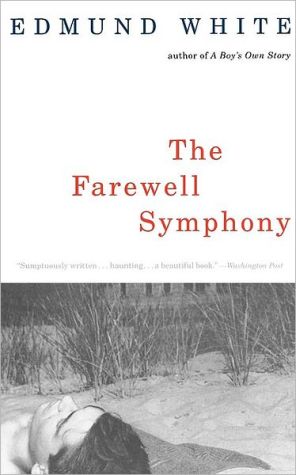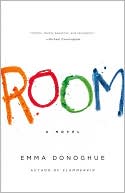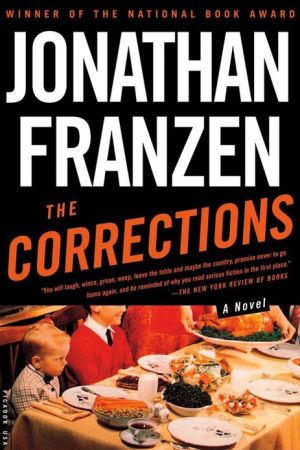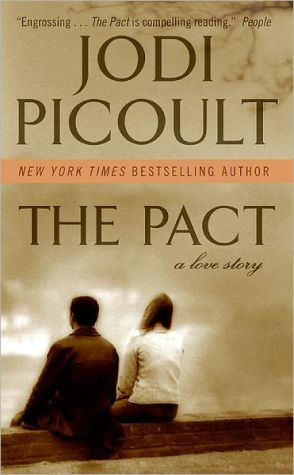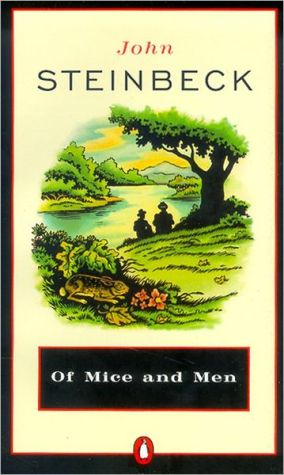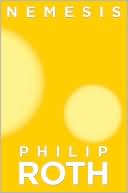The Farewell Symphony
Following A Boy's Own Story (now a classic of American fiction) and his richly acclaimed The Beautiful Room Is Empty, here is the eagerly awaited final volume of Edmund White's groundbreaking autobiographical trilogy.\ Named for the work by Haydn in which the instrumentalists leave the stage one after another until only a single violin remains playing, this is the story of a man who has outlived most of his friends. Having reached the six-month anniversary of his lover's death, he embarks on...
Search in google:
Following A Boy's Own Story (now a classic of American fiction) and his richly acclaimed The Beautiful Room Is Empty, here is the eagerly awaited final volume of Edmund White's groundbreaking autobiographical trilogy. Named for the work by Haydn in which the instrumentalists leave the stage one after another until only a single violin remains playing, this is the story of a man who has outlived most of his friends. Having reached the six-month anniversary of his lover's death, he embarks on a journey of remembrance that will recount his struggle to become a writer and his discovery of what it means to be a gay man. His witty, conversational narrative transports us from the 1960s to the near present, from starkly erotic scenes in the back rooms of New York clubs to episodes of rarefied hilarity in the salons of Paris to moments of family truth in the American Midwest. Along the way, a breathtaking variety of personal connections—and near misses—slowly builds an awareness of the transformative power of genuine friendship, of love and loss, culminating in an indelible experience with a dying man. And as the flow of memory carries us across time, space and society, one man's magnificently realized story grows to encompass an entire generation.Sublimely funny yet elegiac, full of unsparingly trenchant social observation yet infused with wisdom and a deeply felt compassion, The Farewell Symphony is a triumph of reflection and expressive elegance. It is also a stunning and wholly original panorama of gay life over the past thirty years—the crowning achievement of one of our finest writers.Publishers WeeklyMarked equally by erotic fervor and lyrical intensity, the final installment in White's autobiographical trilogy (following A Boy's Own Story and The Beautiful Room Is Empty) is also the longest, the most baroque and the most elegiac. It carries us from the heady days of the Stonewall Riots through the ravages of AIDS. As usual, White subordinates his interest in the larger matters of recent gay history to the task of vividly evoking the men in the narrator's life through whom those events are understoodusually in a sympathetic, Proustian effort at social taxonomy. The giggling, snobbish, closeted 'White Russians' slumming at the Stonewall typify one kind of gay man, just as Brandy, a sequined and exquisitely theatrical drag queen, represents another. The narrator literally embraces many of them, he seems perpetually as surprised by his catholic tastes in men as he is by the fetishes of others. The novel is invigoratingly, rigorously artificial, flirting with mannerism even as it celebrates sprit and erudition in others (one James Merrill-esque poet dismisses some Japanese scrolls as 'the usual swirls before pine'). Expatriate life, first in Rome and then (for a more extensive period) in an initially inhospitable Paris sharpens the narrator's sense of isolation; a rejection slip for his novel sends him into suicidal despair, from which salvation lies (typically) in a liaison with a Danish tourist. As the narrator's writing career flourishes, he finds himself in the rarefied company of powerful, learned editors, poets and novelists -- company that intersects rather than stands distinct from the priapic habitus of Greenwich Village. Extended episodes involving his mother's decline into illness and dementia, his father's death and his sister's coming to terms with her lesbianism highlight the insularity of the narrator's world. The book is best enjoyed not for a strong story, indeed, the Brice for whom the narrator mourns at the beginning and close is rather peripheral, but for its luminous snapshots of New York, Paris and Rome and of the vital parade of mendowdy, forbiddingly gorgeous, sylph-like, ephebic, closeted, defiantly and militantly outthat crowd its pages.
\ Publishers Weekly - Publisher's Weekly\ Marked equally by erotic fervor and lyrical intensity, the final installment in White's autobiographical trilogy (following A Boy's Own Story and The Beautiful Room Is Empty) is also the longest, the most baroque and the most elegiac. It carries us from the heady days of the Stonewall Riots through the ravages of AIDS. As usual, White subordinates his interest in the larger matters of recent gay history to the task of vividly evoking the men in the narrator's life through whom those events are understoodusually in a sympathetic, Proustian effort at social taxonomy. The giggling, snobbish, closeted 'White Russians' slumming at the Stonewall typify one kind of gay man, just as Brandy, a sequined and exquisitely theatrical drag queen, represents another. The narrator literally embraces many of them, he seems perpetually as surprised by his catholic tastes in men as he is by the fetishes of others. The novel is invigoratingly, rigorously artificial, flirting with mannerism even as it celebrates sprit and erudition in others (one James Merrill-esque poet dismisses some Japanese scrolls as 'the usual swirls before pine'). Expatriate life, first in Rome and then (for a more extensive period) in an initially inhospitable Paris sharpens the narrator's sense of isolation; a rejection slip for his novel sends him into suicidal despair, from which salvation lies (typically) in a liaison with a Danish tourist. As the narrator's writing career flourishes, he finds himself in the rarefied company of powerful, learned editors, poets and novelists -- company that intersects rather than stands distinct from the priapic habitus of Greenwich Village. Extended episodes involving his mother's decline into illness and dementia, his father's death and his sister's coming to terms with her lesbianism highlight the insularity of the narrator's world. The book is best enjoyed not for a strong story, indeed, the Brice for whom the narrator mourns at the beginning and close is rather peripheral, but for its luminous snapshots of New York, Paris and Rome and of the vital parade of mendowdy, forbiddingly gorgeous, sylph-like, ephebic, closeted, defiantly and militantly outthat crowd its pages.\ \ \ \ \ Christopher BenfeyAn engagingly bittersweet novel. -- New York Times Book Review\ \ \ Kirkus ReviewsThis long, rich fiction, set mostly in Manhattan and Paris, concludes White's autobiographical trilogy—and falls somewhere in quality between the pellucid excellence of A Boy's Own Story (1983) and the mannered redundancy of its sequel, The Beautiful Room Is Empty (1988). Here, the story of a generation—the one that originated the gay liberation movement in the late '60s, then began dying out a few years later with the AIDS pandemic—is compressed into the remembered experiences of its narrator, a bereaved lover mourning the deaths and looking backward over 30 years' worth of sexual adventuring and slow progress toward maturity and success as a writer. White gives a graphic picture of bohemian Paris in '68, and elsewhere offers unusual perspectives on familiar locales (cruising at the Colosseum in Rome, observing 'Fire Island as an exact analogue of medieval Japan'). The novel's signal weakness is the sameness of the many, many men who wander in and out of the narrator's life (his recently deceased lover Brice is scarcely a character at all; on the other hand, Jamie, a sybaritic NYC '`blueblood,' exhibits a cockeyed charisma that fully justifies the narrator's exasperated fascination with him). White writes plaintively about the disappointments of aging and losing one's sexual allure, and convincingly connects the decline of phallic power with the fear of literary senescence. If he's a bit smug about the mores and pleasures of being a gym rat, he writes vividly, and always amusingly, about the mechanics and etiquette of 'tricking.' White's unmatched ability to communicate the tension between asserting one's right to be 'different' and yearning to beaccepted as 'normal" is brilliantly displayed again. Nothing human is alien to him, and none of his alienated souls is anything less than achingly human.\ \
